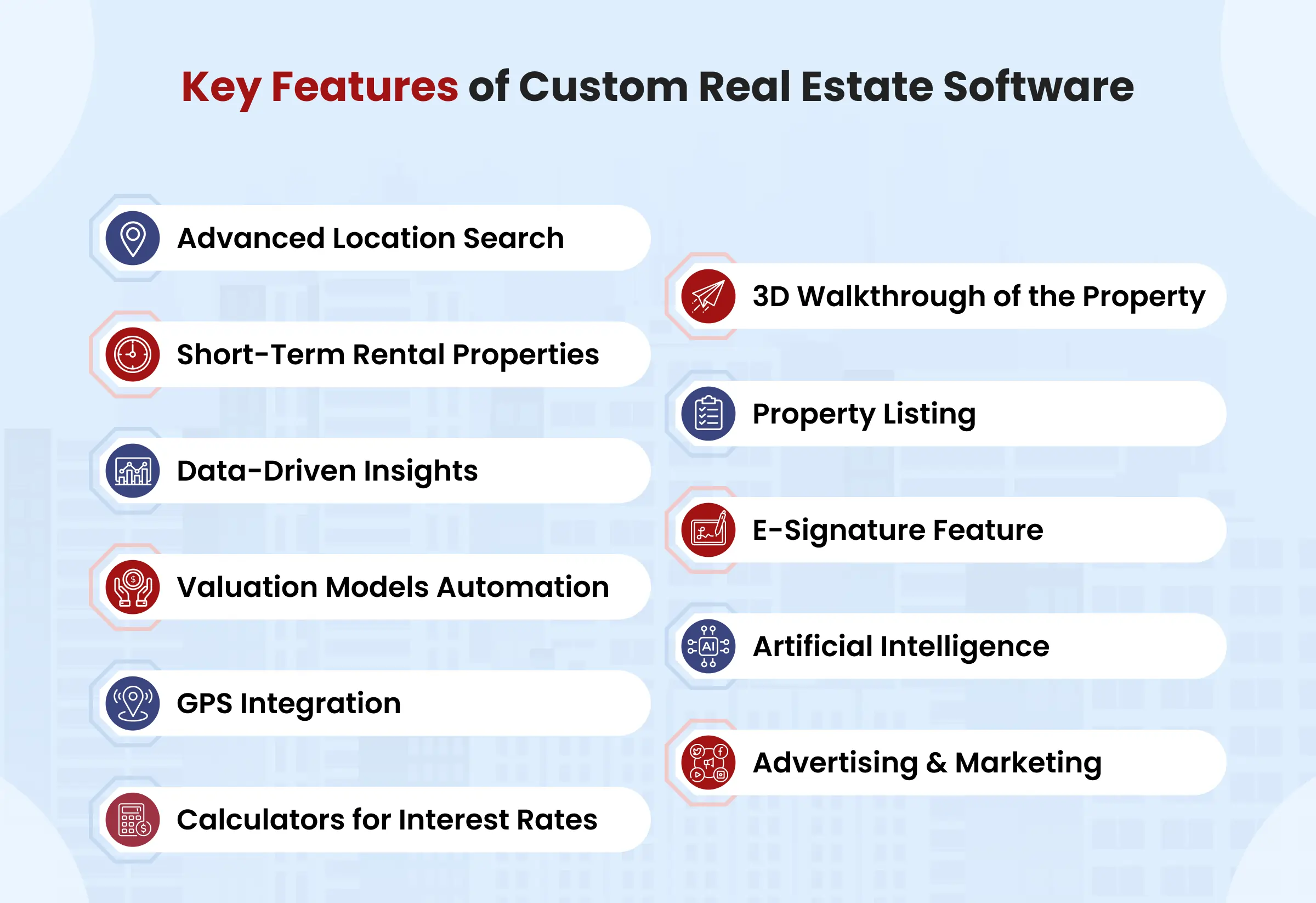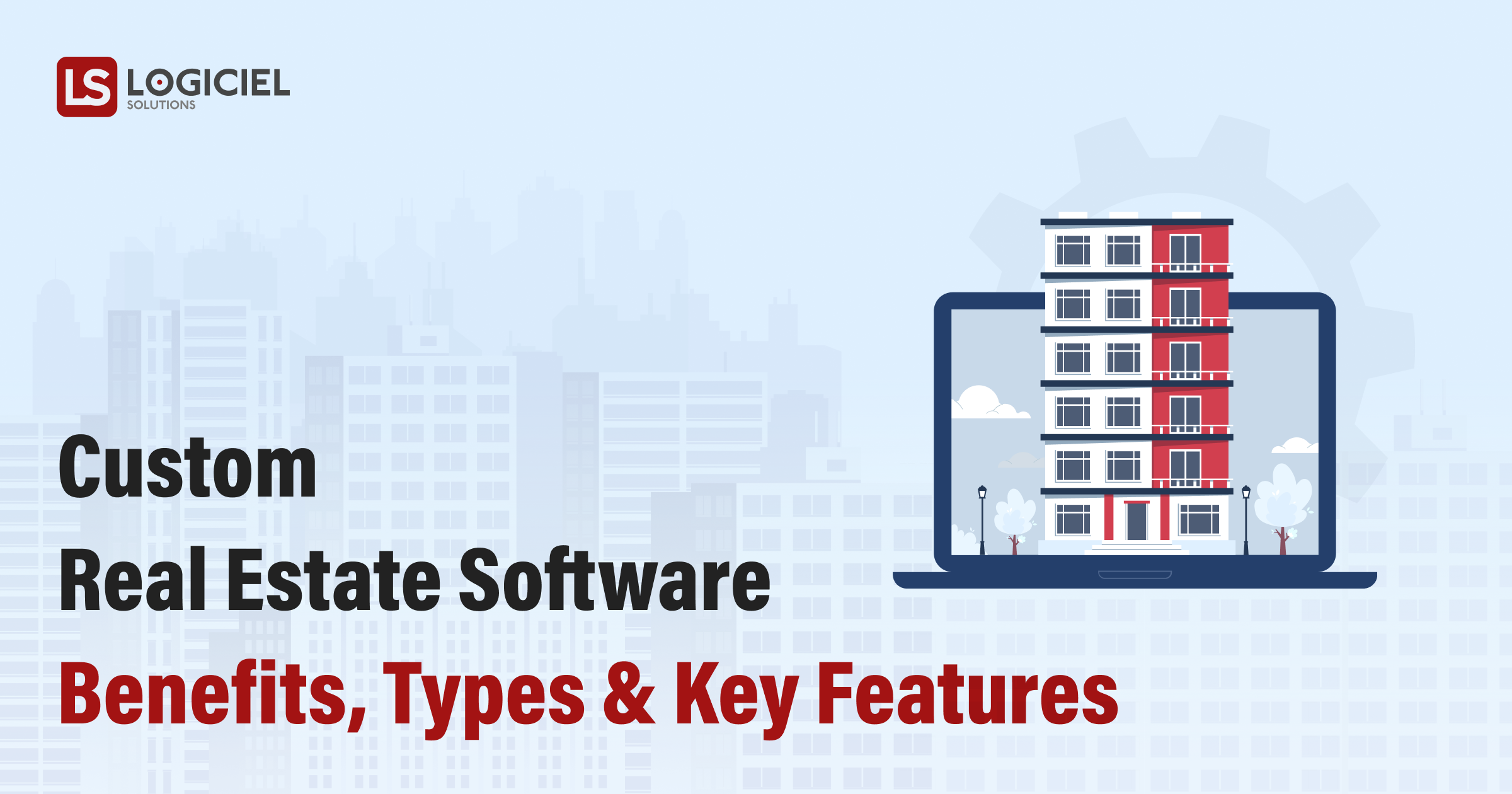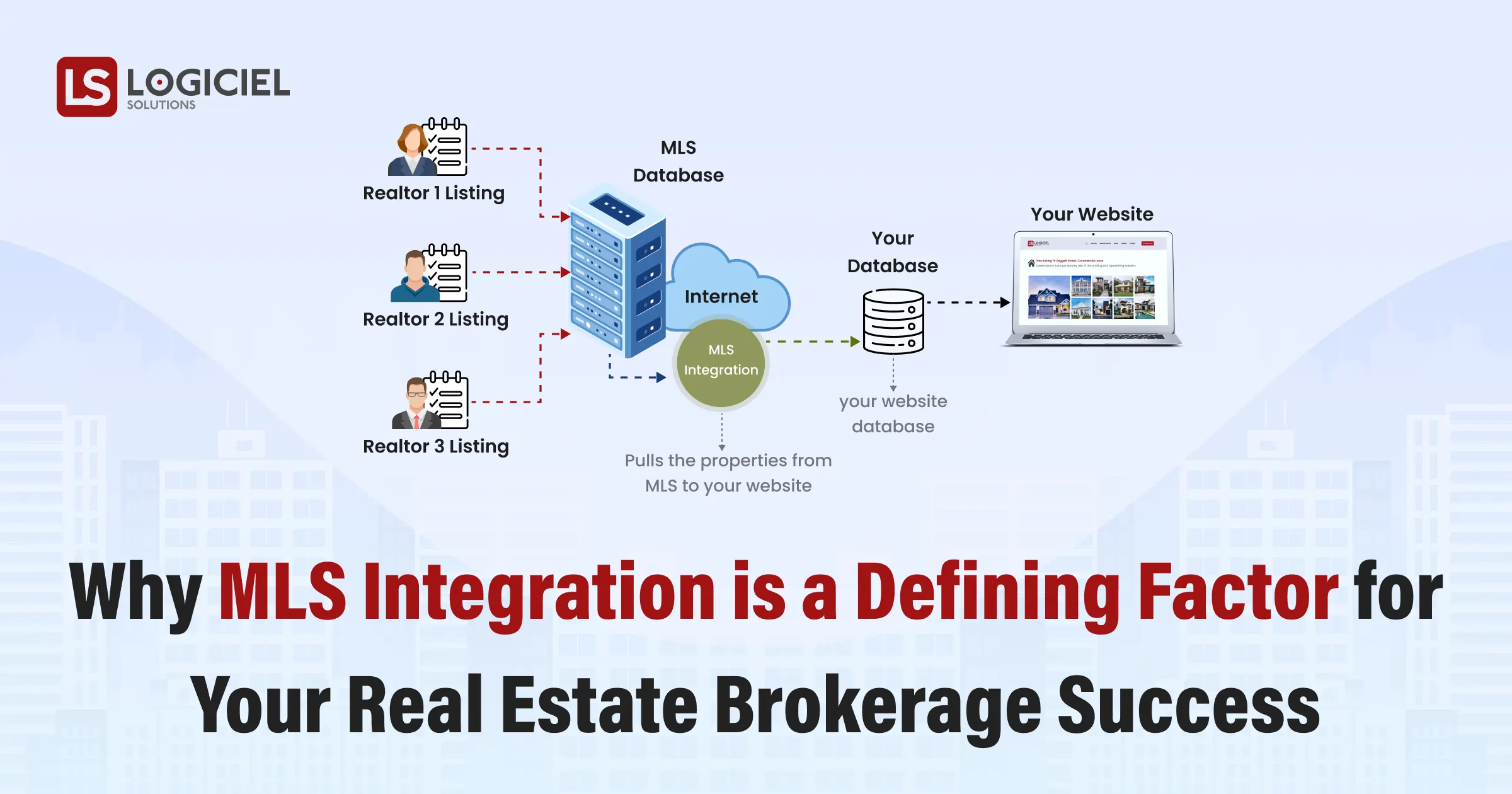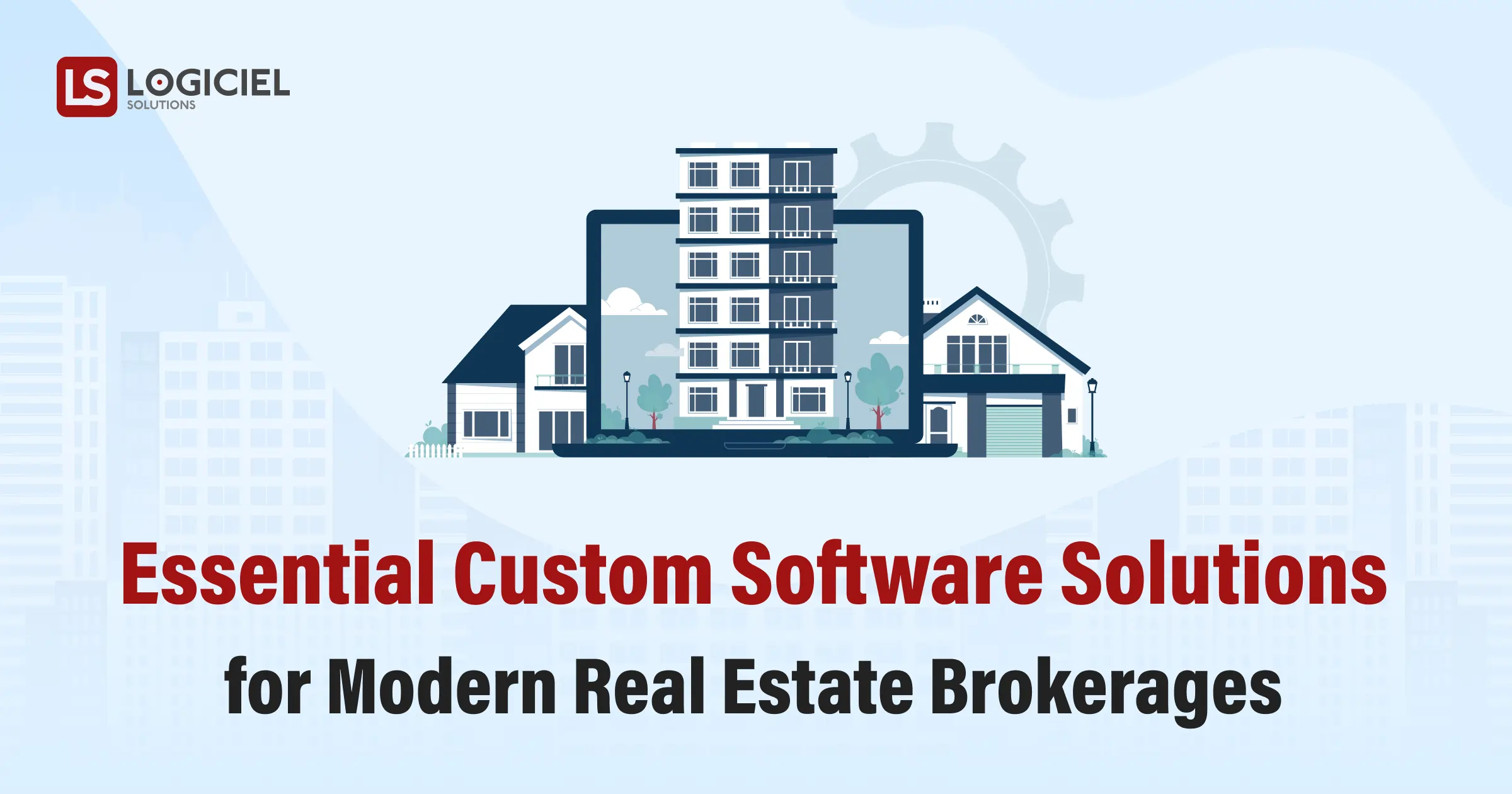The growing trend of proptech solutions has redefined the way people sell or buy properties. With lots of tools and technologies entering the digital landscape everyday, Custom Software Development For Real Estate Industry becomes a necessity. From getting leads to closing deals, real estate professionals need a streamlined and well organized system of automated processes in place to sustain in today’s highly competitive market.
Reducing cost and improving productivity are the two main reasons – why more and more real estate companies are adopting custom software. Looking at the growing popularity graph of technology in property, it’s clear that now the real estate business isn’t just about selling properties to the clients, it’s about building relationships by delivering great experiences.
In this blog you will learn everything about custom real estate software including their benefits, types, and key features.
What is Custom Real Estate Software?
Whether in the office or out in the field real estate professionals are always on the move. Therefore, they need all their tools in one platform or we can say a centralized location so they can access critical information anytime from any device. As we always say “Organized data is not just the key to success – it’s a mandatory tool for scaling a real estate business and selling more homes.”
The primary role of a CRM is to provide a comprehensive, personalized solution that helps realtors manage, attract, and nurture relationships with both current and potential clients.
Be it residential or commercial real estate, an effective CRM can help all the real estate professionals including brokers, agents and lenders to boost their ability to sell faster and more effectively.
Types of Real Estate Software
Majorly there are 4 common types of Real Estate Software that are used to solve different purposes. Let’s explore them one by one:
1. Real Estate CRM Software
An effective CRM helps realtors to build reliable relationships while making data-driven decisions. It is like having a single source of truth that provides your realtors everything they need, it is a critical tool for any real estate agent
- Who is juggling multiple clients at a time and prospecting for new ones.
- Who is trying to keep appointments and contracts organized.
With a centralized system, real estate professionals can easily update, change, or delete information anytime, from anywhere.
From managing contracts with buyers and sellers to tracking clients’ needs and transactions, and automating processes to nurturing leads, a CRM is the essential tool realtors need to stay responsive and organized.
2. Real Estate ERP Software
Enterprise resource planning systems are the tools that integrate all the processes in one platform, reducing the need for multiple tools. Real estate ERP software enables realtors to manage day-to-day activities across various departments such as finance, human resources, inventory, supply chain, project management, and more.
While keeping track of accounting activities, managing projects and risks, a Real Estate ERP also helps realtors get valuable insights and stay ahead of the competition.
3. Property Management Software
Real estate management software plays an important role in streamlining and automating various tasks related to managing properties, whether it’s residential, commercial, or industrial real estate. It serves property managers, landlords, real estate agents, and investors by providing a centralized platform to handle day-to-day operations efficiently.
Property management software allows you to actively track finances, ensuring all transactions are recorded accurately. It also streamlines rent collection through various payment methods, including cash, check, and credit cards. Additionally, the software manages tenant agreements by creating a centralized database for storing contracts, correspondence, renewals, and rent details, ensuring legal compliance with local regulations.
4. Virtual Tour Tools
This is one of the most popular Proptech Trend in Real Estate because nobody wants to go through the tedious process of visiting different properties again and again. No matter whether it’s a broker or client, everyone wants to save time and effort. Here comes the virtual tour tools to give the real estate sellers and buyers the comfort of showing and experiencing different properties virtually right from their offices or homes.
Top Benefits of Real Estate Software
Reduced cost, enhanced productivity, and centralized information are the top Benefits of Real Estate Software but they are not the only ones, here is a list of other amazing advantages of these custom real estate software:
1. Integration Throughout the Process
Real estate businesses function in several different formats and to run the business successfully it is important that they are integrated seamlessly into one software.
Real Estate Software Development companies today are coming up with more and more digital solutions that are customized to specific needs of individual real estate firms.
While the real estate data is collected from various different sources like websites, direct contacts, social media, online advertisements, email marketing, etc. It is challenging and time-consuming to create and manage individual accounts for all of them in the long run.
A real estate software is the best solution to this as it makes collecting, storing, and segmenting the real estate data much easier.
2. Managing Clients’ Contacts
Real estate software makes it easy to keep track of your clients’ contact information. You can organize them into groups and build a detailed customer profile, allowing you to stay on top of your relationships.
It also helps you automate sending greetings for birthdays, anniversaries, and other special occasions, so you never miss an important event.
Beyond attracting new clients, this software helps you stay connected with past clients, strengthening long-term relationships that benefit your business.
3. Reports and Analysis
Generating elaborated regular, monthly or yearly reports is another great advantage of a custom real estate software. It enables real estate professionals to actively evaluate their performance and ROI. It ultimately helps them figure out the best strategies that have performed well and the areas where improvement or more efforts are needed.
With the help of the accurate report and analysis realtors can direct their future marketing campaigns and strategies like updating the email subjects, making their promotional content more action-oriented, and removing the less important things that did not perform well.
4. Payment Management
The software enables you to set up, manage, and execute payment plans efficiently. It keeps all property-related data organized and up-to-date, including contract extensions, lease terminations, and relevant documents.
With real estate software, you’ll stay on top of important tasks, thanks to software-based alerts for timely actions. It helps manage charges and costs to avoid fines and sends reminders to clients who owe money, fostering positive business relationships.
Key Features of Custom Real Estate Software





